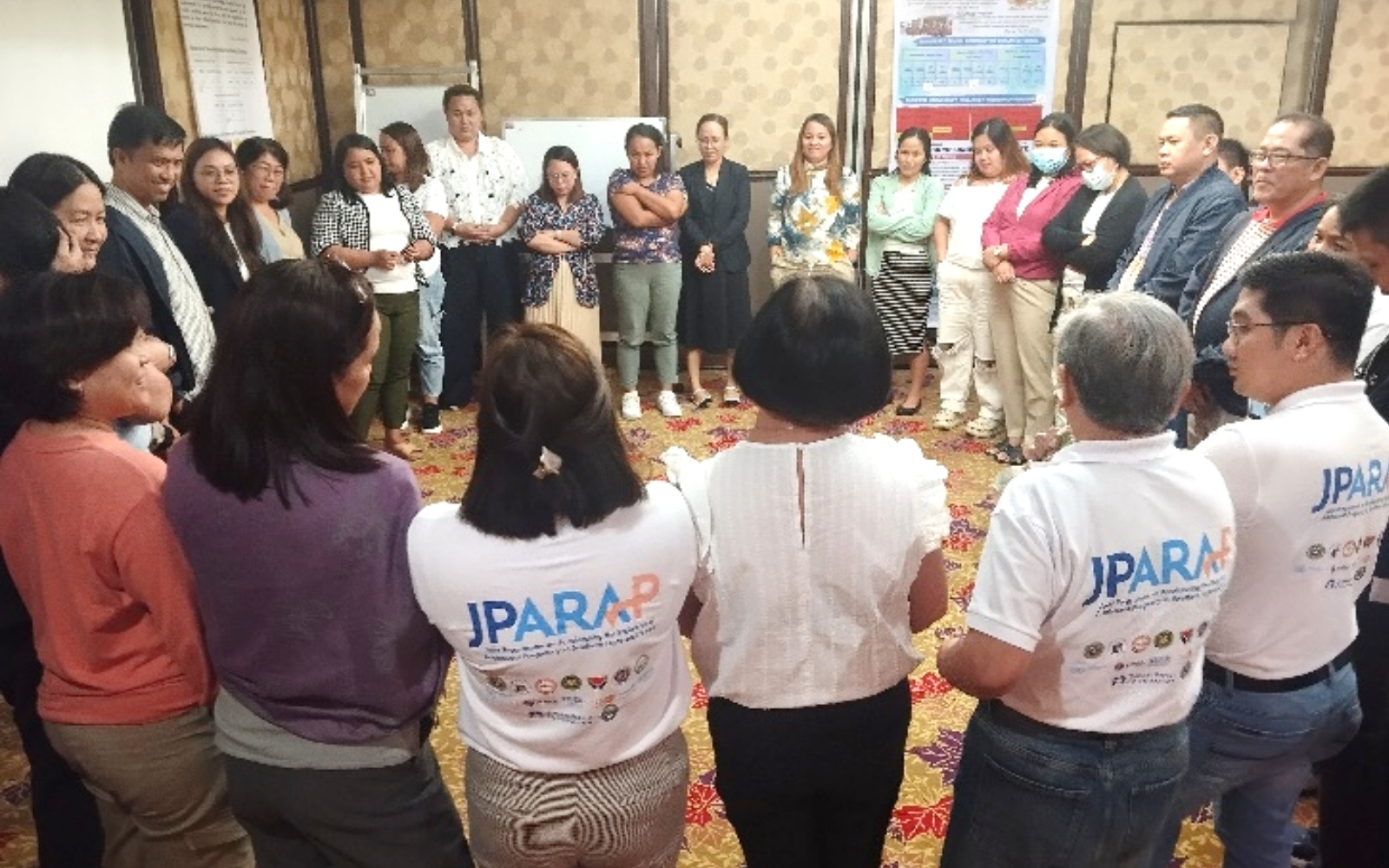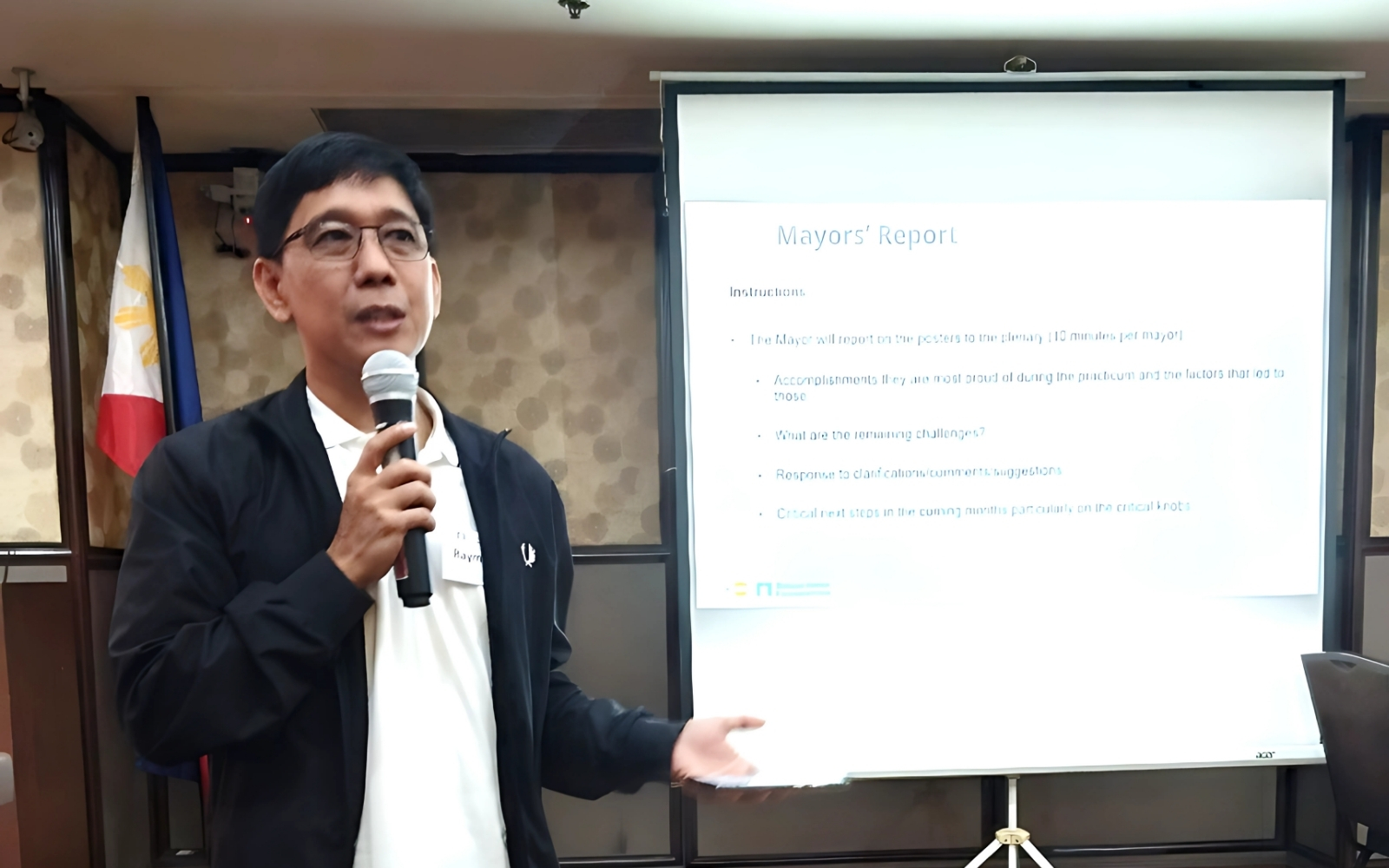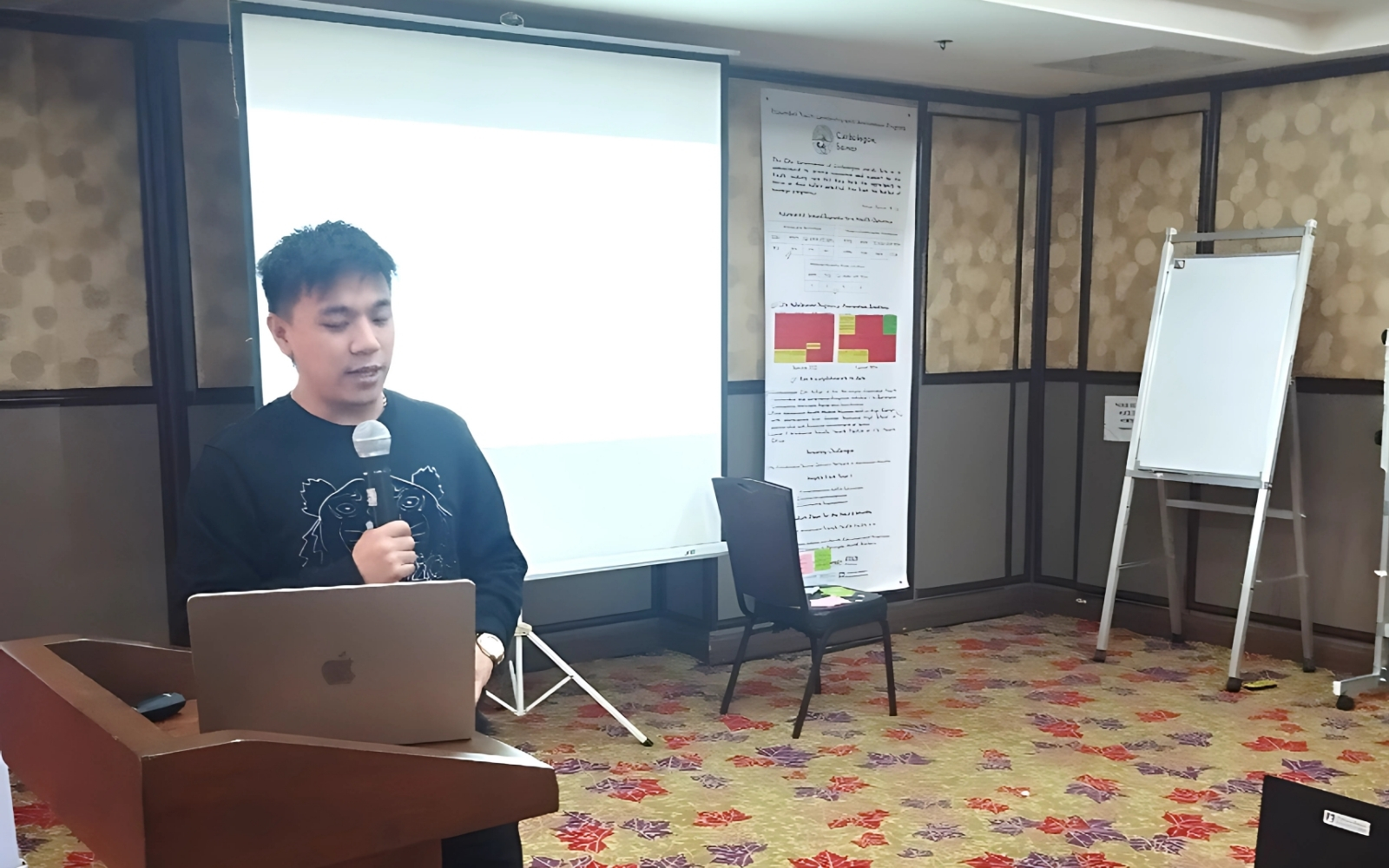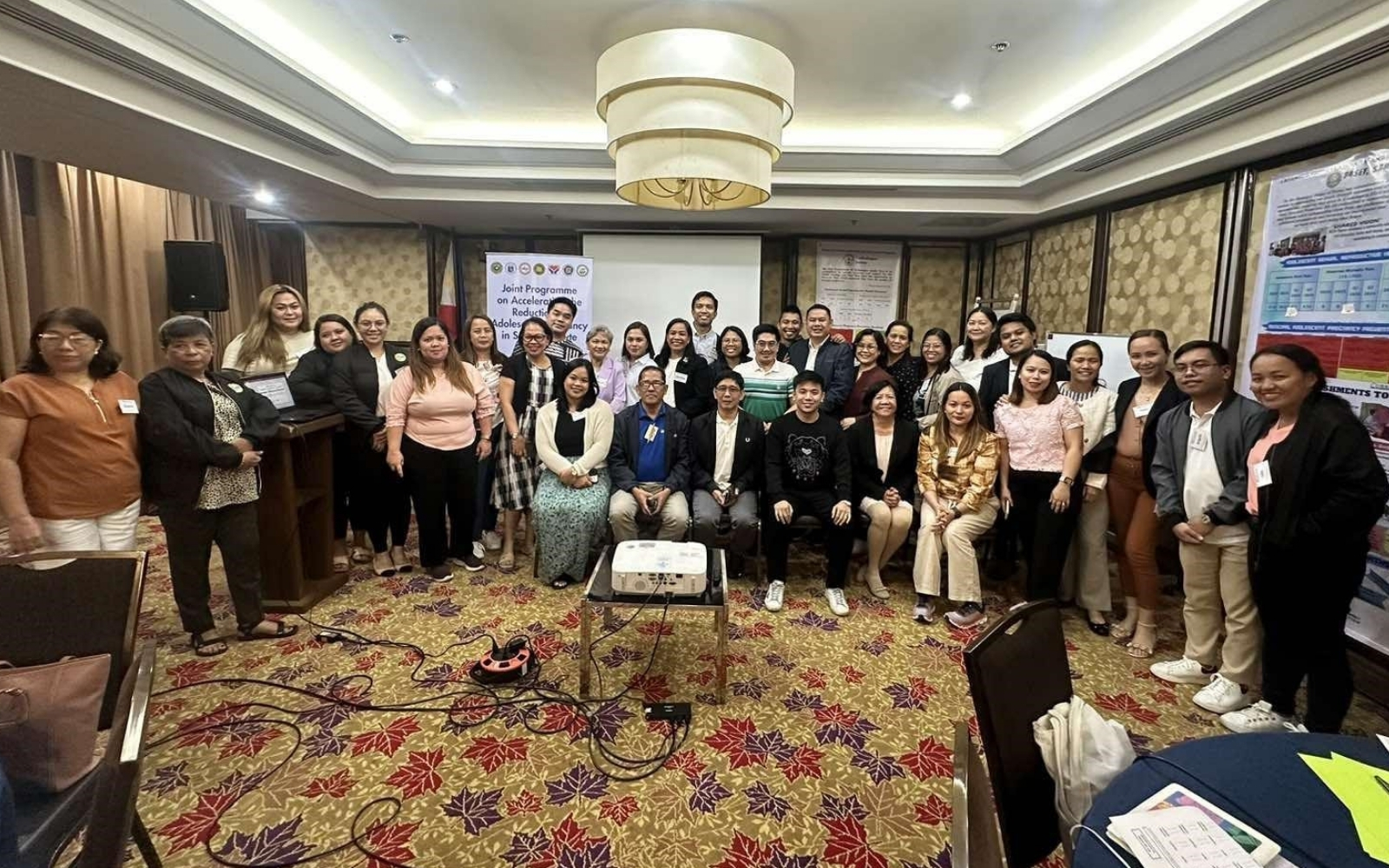Municipal Expanded Youth Leadership and Governance Program: Strengthening Local Governance for Adolescent Health in Samar
News | by Krizzia Esperanza

From September 25 to 27, 2024, municipal leaders from Samar gathered at the Ramada Hotel in Binondo, Manila, for the Municipal Expanded Youth Leadership and Governance Program (MEYLGP) Module 2. This three-day training aimed at addressing adolescent pregnancy through stronger governance and collaboration among local officials.
The MEYLGP is designed to enhance the capacity of local leaders over a 24-month period, providing them with two training modules and practical applications. This initiative supports local government units (LGUs) in strengthening adolescent and youth sexual and reproductive health (AYSRH) systems by applying multi-level interventions.
During the event’s opening, Roland Paul Junio from UNFPA delivered remarks that stressed the importance of bridging national policies with on-the-ground implementation. He encouraged municipal leaders to prioritize interventions that directly benefit adolescents in their communities, highlighting the pressing need for local actions that align with broader policy goals.
Municipal Progress Reports: Calbayog and Catbalogan Cities

One of the key moments during the training was the presentation of progress reports from mayors. Mayor Raymond Uy of Calbayog shared significant results, noting a reduction in the adolescent birth rate from 26% in 2022 to 11% in 2023. His leadership established a Local Youth Development Office (LYDO) aimed at improving youth services. However, Mayor Uy acknowledged challenges, including limited access to modern contraceptives and difficulties in tracking pregnancies due to disruptions caused by barangay elections. He emphasized the importance of improving data analysis and strengthening guiding coalitions to address these gaps.
Similarly, Mayor Dexter Uy of Catbalogan shared his city’s successes in launching adolescent-friendly health initiatives and conducting medical missions. He reported that two barangays are now set to receive Level 1 Adolescent-Friendly Health Facility accreditation, and a Key Assistance for Developing Adolescents (KADA) network had been established to strengthen services for youth. Mayor Uy underscored the city’s commitment to continue these efforts, calling for sustained action to reduce adolescent pregnancies and improve health outcomes.

Action Planning for Addressing Challenges in Adolescent Health
The core of Module 2 focused on creating actionable plans to address ongoing challenges in adolescent health. The municipal leaders engaged in discussions, formulating specific and measurable actions tailored to the needs of their localities. In Basay, for example, leaders planned to establish a strong guiding coalition with clearly defined roles and responsibilities, while also improving data collection and conducting community walks to raise awareness of AYSRH programs. They also aimed to increase adolescent access to services and use social media to campaign against selling alcohol to minors.
In Catbalogan, leaders committed to revitalizing their guiding coalition and passing a KADA Ordinance at the barangay level, aiming to engage all 57 barangays in the process. They also planned to integrate health information systems through Barangay Health Workers (BHWs), ensuring that at least one primary health care facility would meet adolescent-friendly standards. A series of community forums would also be held to promote AYSRH and monitor the effectiveness of these outreach programs.
In Paranas, the action plan focused on collaborating with the Department of Education (DepEd) to conduct school-based AYSRH symposiums. Local leaders also aimed to train youth peer educators and renovate their teen center to meet the necessary standards for adolescent-friendly facility accreditation. Meanwhile, Villareal municipal leaders worked on formalizing their guiding coalition team and securing a location for a teen hub, targeting two high schools for ASRH initiatives.
Calbayog City’s leaders, meanwhile, prioritized the effective use of funds already allocated to the City Health Office and planned to establish better data collection mechanisms to track adolescent health trends. They also outlined plans for community workshops to promote AYSRH, starting with pilot barangays before expanding the initiative citywide.

The MEYLGP Module 2 provided a platform not only to equip municipal leaders with the tools they needed but also to foster collaboration among them. Armed with their action plans and backed by ongoing mentorship, they aim to create healthier, more supportive environments for adolescents in Samar and Southern Leyte.